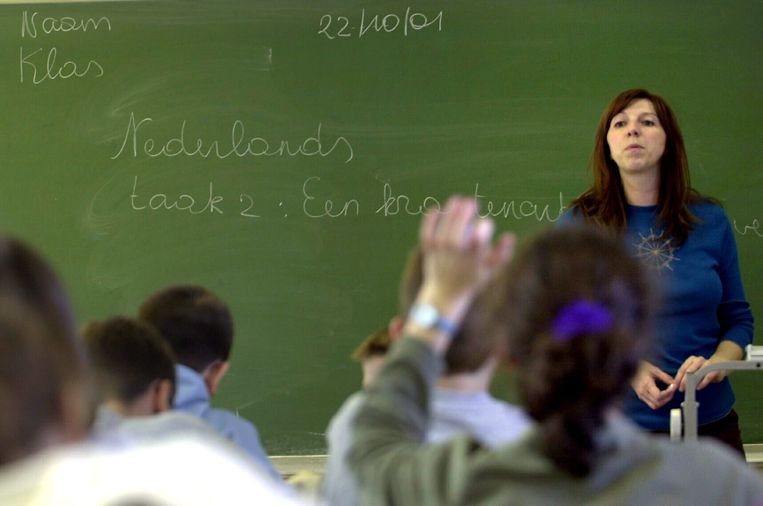Flanders is combining the forces of the education sector and employment services to tackle teacher shortages while reducing the number of unqualified school leavers.
The cooperation agreement between Flemish employment service VDAB, Catholic Education Flanders (KOV) and Flemish Employment Minister Hilde Crevits aims to smoothen the transition from school to work, offer lifelong learning possibilities and increase the flow of job-seekers into education.
"Today, there are more than 2,994 vacancies in education. With this agreement, we will tackle the shortage of teachers in our schools in a targeted way," Crevits said in a statement.
Belgium's shortage of teachers has become more serious for years. Between 2013 and 2019, the number of nursery or primary school teachers being sought rose from 3,137 to 4,846, while in secondary schools this more than doubled from 4,956 to 11,881.
This year, the problem became more acute, as, for the first time, school principals were not able to fill all teaching positions before the start of the school year, which started with 2,400 vacancies.
More and better teachers
With the help of the VDAB, schools will be able to attract well-trained teachers in a more effective way. "After all, the shortage of teachers is the greatest threat to the quality of education," KOV's Director-General Lieven Boeve, Director-General said.
Both partners will focus on postponed entry into the teaching profession, whereby job-seekers are trained to become teachers at a later stage. They will do so by combining the necessary expertise and data to map out the shortage of teachers in a more detailed way, for example in what subject they are most needed.
They also want to combat teacher drop-out by supporting schools more in initial guidance for new teachers, staff coaching and evaluation policy and by developing an integrated welfare policy.
Reducing number of unqualified graduates
In 2019, 6,085 young people left school without qualifications, 28% of whom were still looking for work a year later, as this is one of the biggest obstacles for them to find a job. Among young people with a secondary qualification, this number is 11% and as low as 5% for those with a higher qualification.
The partners will work to inform students about the importance of a diploma and work through data linkage, school-leaving days, job fairs and youth counsellors, and will ensure schools can respond more effectively to the needs of pupils in labour market-oriented training courses by tightening the gap between school and employment careers.
Related News
- 'Cup is not just full, but overflowing': thousands of teachers strike in Brussels
- 'All hands on deck': School inspectors cover Covid-driven staff shortages
- Flanders launches plan to combat alarming teacher shortages
In 2021, more than 1,400 students in total started an education course via the VDAB, which will be central to the agreement. These not only strengthen vocational strengths but also provide general training such as Dutch as a second language and providing information on acquiring, processing and using information in a targeted way.
"We are tackling several challenges at once: we are improving the transition from education to the labour market, we are tackling the shortage of teachers, we are strengthening the joint training offer for job-seekers, and we are motivating everyone to continue learning," Wim Adriaens, managing director of VDAB, concluded.

